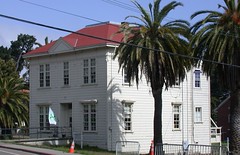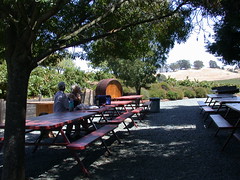It may seem strange, given that I am so immersed in the IT world, that this morning I did (I think) my first ever installation of Windows XP. I have sat in front of XP machines before, of course, but I switched to the Mac in the Windows 2000 era and have never had to install XP from scratch on a PC. Until today.
Actually, today was an experiment – I have a copy of VirtualPC for the Mac and was interested to try it out. I’ve never had a need for Windows myself, but sometimes it can be useful, if I’m trying to help somebody on the phone, to duplicate their actions on my local screen. This software lets you install Windows within a ‘virtual machine’ on your Mac and run a complete version of Windows and any Windows-only software. It seems to work pretty well, albeit slowly.
But what amused me was the very first thing that popped up on my screen after I installed a nice clean, fresh copy of Windows XP on my Mac.

If I had just paid £170 to upgrade my PC to Windows XP Pro, I’m sure I’d be pleased to see that message. If you ‘Click this balloon to fix this problem’ it takes you to a site which lists the places you can spend more money to buy antivirus software. To me, that’s like buying a shiny new car, sliding happily into the soft leather driver’s seat and discovering a note on the steering wheel: “A helpful tip from Mercedes: The locks on your doors may not work. Here’s a list of local garages who can repair them for you.”
The sad thing is, they’re right. And I was grateful for the reminder. I need to make sure that the virtual Windows machine only has very limited access to the rest of my Mac files…







Recent Comments